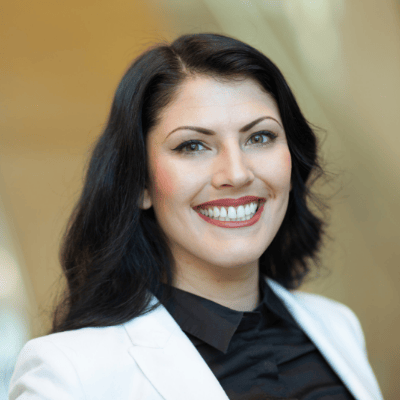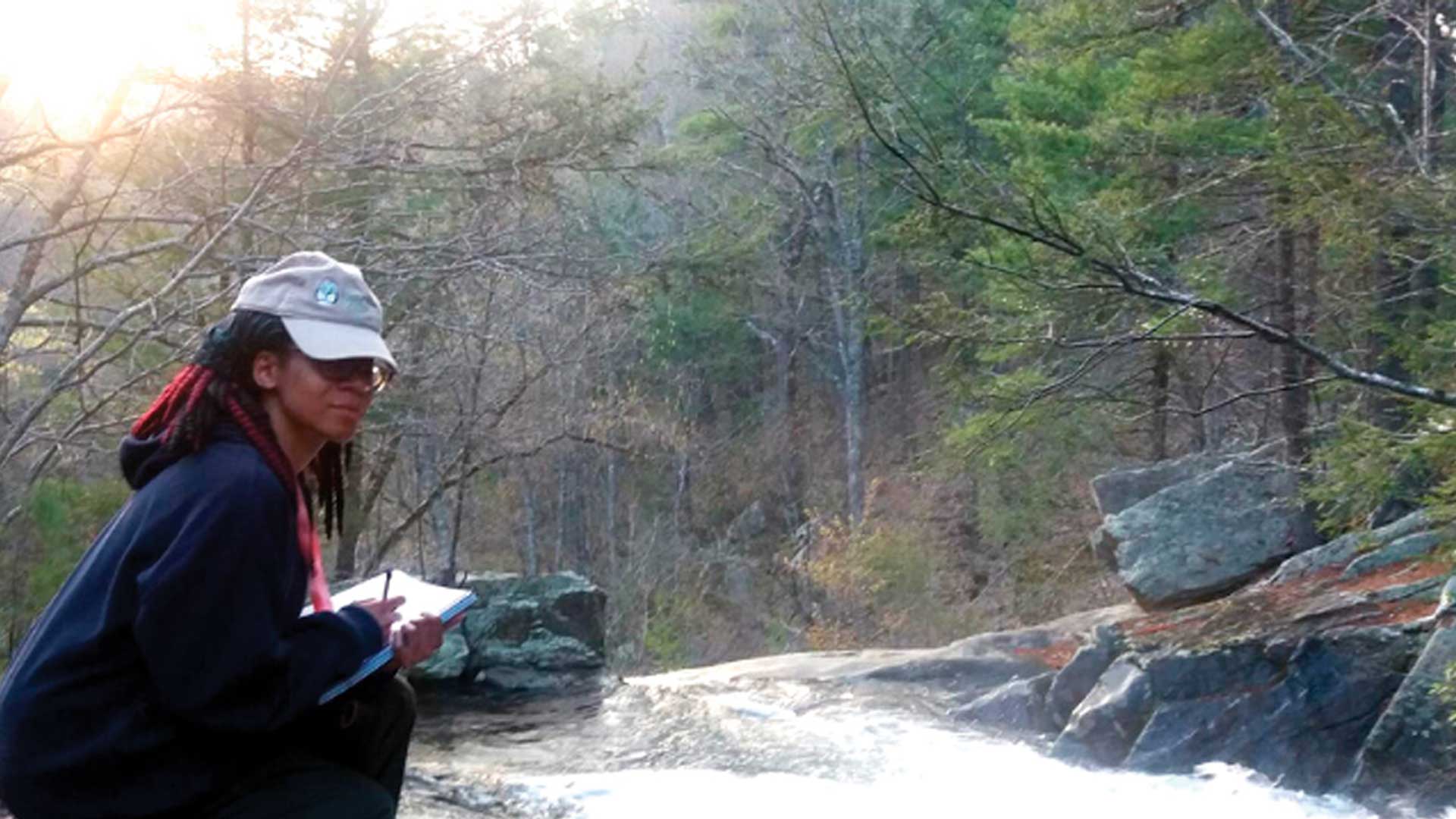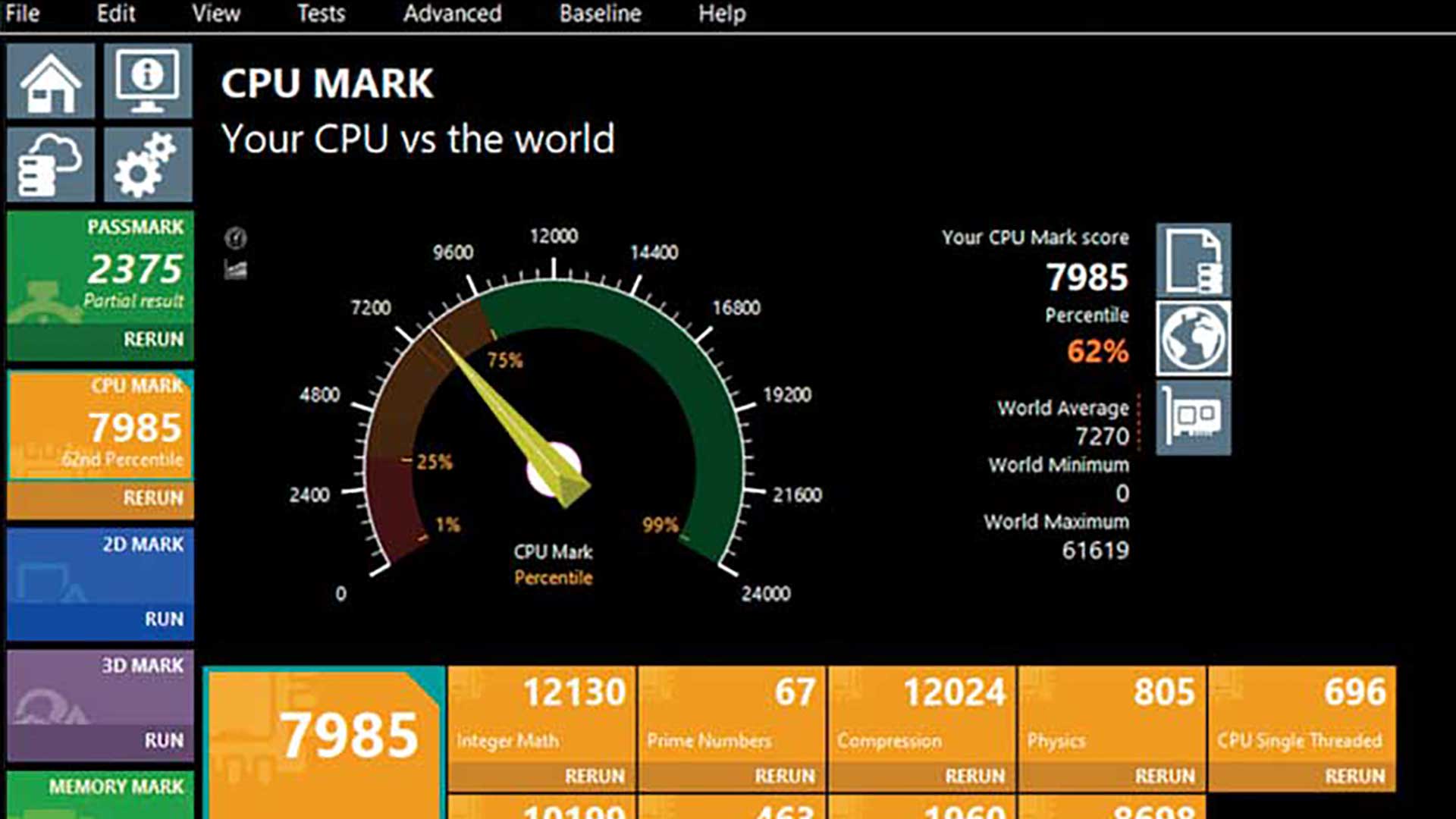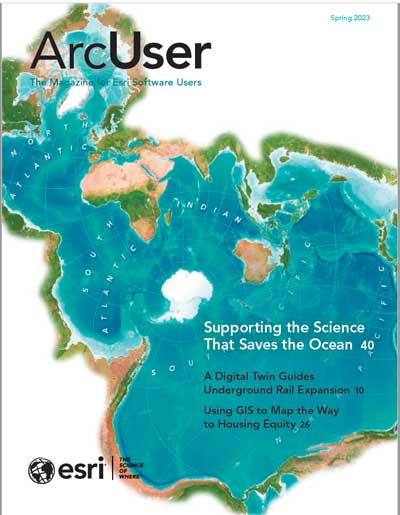Sid Pandey is the chairperson of the Urban and Regional Information Systems Association (URISA) Vanguard Cabinet and GIS senior consultant at Deloitte. In this interview, he shares valuable insight and some tools that will help you take stock of yourself, find mentors, take ownership of your career, and shape its direction.
Q: How did you get your start in GIS?
A: At Penn State, I initially pursued a degree in environmental systems engineering in the College of Earth and Mineral sciences, since I had a big interest in sustainability and building homes off the grid. A lot of the prerequisite courses in my college involved human geography and physical geography, which I really enjoyed. Even though I cared so much about sustainability, the more I went through the major, the more I realized it’s not the right path for me.
I spoke with my adviser, and she said, “You like technology, computers, and the geography classes you’ve taken—have you considered GIS?” I took an introduction to GIS course and absolutely loved it! That class did a good job showing how to use geospatial technology to not only make maps but apply science and technology to use in positive and impactful ways. I ended up switching my major to geography and never looked back.
Before I graduated, I applied to internships and landed a part-time job as a GIS technician for nine months. It was in this role where I had the opportunity to attend [the Esri] Federal GIS Conference and connect with the Esri YPN.
Q: What insights can you give to someone entering a GIS role out of college?
A: It’s different from college because the data is not as clean, the workflows are not as straightforward as they are in your labs, and you have to figure out things on your own. In my college program, I learned a lot that carried over nicely to my next career, but there were things I felt like I hadn’t fully grasped yet until I entered my GIS career. One of them was how to effectively describe what I do in GIS within the organization and how to communicate effectively what I need from people. When you enter in your GIS career, you may work with people who are not spatial thinkers and even folks who are [not] tech savvy overall. So, you may need to learn how to effectively describe what you need from people in different ways both to do your job and to help them understand how they can better help you.
I feel as though a lot of people just starting their careers can easily get tunnel vision. They’re just happy they got their new job or internship and, when given a task, they put their head down and work. While there isn’t anything wrong with that, it is important to take the opportunity to reflect on how you fit into the rest of your organization, and know what other people are doing, to get an idea of where else you can get involved and what else you can learn.
When I started at Dewberry, my main mission was to help develop FEMA [Federal Emergency Management Agency] flood insurance rate maps. It was great—I got to make cool maps at work. However, after a while and after listening to the interesting work many of my colleagues were doing, I began to want to do more.
I was fortunate that my team encouraged me to talk to other people in the company to learn about what they were doing. In those conversations, I would provide my own ideas and to my surprise, I found that most people were very receptive to hearing my thoughts and letting me help. This is where I learned that it’s important to take a step back to look at the bigger picture of seeing [how] you fit in the ecosystem of your organization and not being afraid to speak up and share your thoughts and ideas. You never know when one of those ideas will turn into your next project or opportunity!
Q: Was there anyone who helped you as a mentor?
A: Yes! Many people throughout my career so far. I got a lot of mentoring from people outside of my organization. Coming into Dewberry, I was already a member of the Maryland Geographic Information Committee, and through that organization I got to meet a lot of people and observe how they interact with their coworkers and their organizations. I saw how they would explain what they do and how they pitched ideas to other folks, and then I would try and bring that back to my own organization.
I also had informal [mentoring from] people across my organization who’ve been very supportive. When I hear something interesting in a meeting, a lunch and learn [session], or see something interesting on our company intranet, I always try to make an effort to reach out to my colleagues to learn about it. I encourage you to do the same! It can be as simple as saying, “Hey, I’m really interested in/have questions about what you do and want to learn more.” It’s from those organic, informal conversations about others’ projects and what they do that you can learn a lot. Take the opportunity to ask questions and get advice from them and build a relationship with them. It’s important to find your allies in an organization—people who will think of you for new opportunities and look out for you—and this is a great way to do it.
Q: How can someone take the initiative to gain mentorship opportunities?
A: First, you need to think through what it is you need or are looking for. Do an assessment of yourself. What are your strengths and weaknesses? Understand who are the people around you (either in or outside your organization) who can offer something that will help you fill the gaps and reinforce the strengths you have.
Then, reach out and connect! As I said earlier, you can reach out directly to people around you or find a mentorship program. Both URISA’s Mentoring Network and Women+ in Geospatial have great programs.
Take that initiative to regularly meet with someone or multiple people to pick their brain and come up with a basic agenda. Much of mentoring happens informally, but having a rough idea of what you want to talk about can be helpful.
Get a diverse group of mentors at different levels, such as people who are above you and peers at your level as well. Give yourself as many perspectives as you can.
Q: What can someone do in college to get their name out there?
A: Most conferences have opportunities to be a student volunteer, such as Esri and URISA conferences. If you’re able to be a student volunteer, you will get the opportunity to network or even be a moderator for a session [presentation].
You can also join an organization that has student memberships, like the American Association of Geographers [AAG], the Urban and Regional Information Systems Association [URISA], the United States Geospatial Intelligence Foundation [USGIF], and the American Society for Photogrammetry and Remote Sensing [ASPRS].
There are also competitions out there you can [participate in by submitting] projects you’ve worked on, such as ArcGIS StoryMaps competitions and poster competitions for various conferences. Take the chance and put your work out there. You may be surprised with how much positive feedback you receive! There are things you can take advantage of during your school breaks too. There are tons of local GIS meetups not tied to organizations. It’s so much easier to get involved now with so many informal opportunities like those I mentioned.
Q: What training opportunities do you recommend?
A: I suggest assessing what kind of training you need first and then working with your school, workplace, or other resources to see what training you have available to you. Many times, you will find you have access to LinkedIn Learning, Esri’s virtual training campus, and more. Public speaking also tends to be a big thing that people want to work on, so try checking out your local Toastmasters group to help. They’re going to help you to learn and practice presenting at a conference or meeting and in smaller settings.
LinkedIn has great training courses, one of which is email writing. I’ve seen folks struggle with email writing and [understanding] what is a casual email versus professional [email].
Try and participate in a speed networking event at a conference or meetup you might be attending as well. This is a great way to practice your networking skills.
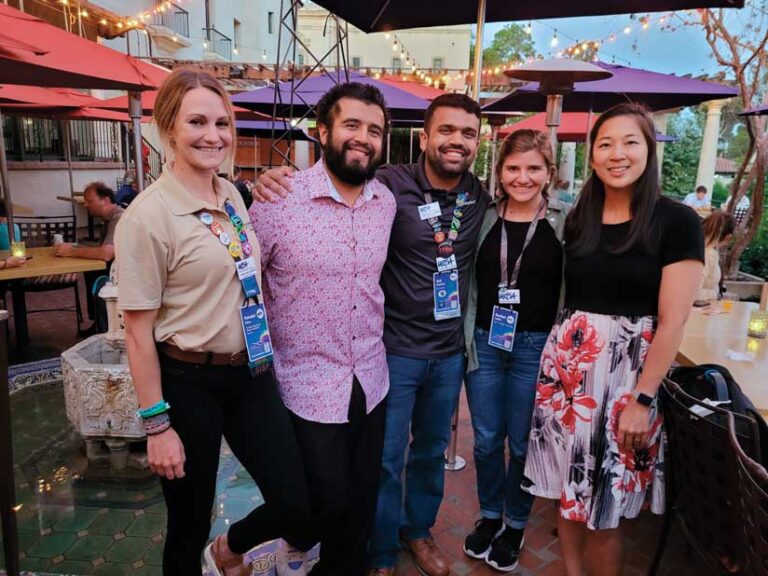
Q: How can someone get involved with URISA?
A: Many people will find themselves in a one-person GIS department, and others will find themselves in a large GIS organization. Whatever the case, when you’re thinking about career growth, you’re going to need people to help [you] gain more perspective, and an organization like URISA can do that. At URISA, it’s like having a GIS family where everyone welcomes you and is willing to talk and share their perspective with you.
Also, I recommend getting involved in an organization like URISA in the beginning of your career. It can start small and grow over time. URISA and other organizations have a variety of committees that are focused around different topics, so you can meet various people and get noticed. People recognize the contributions you’re making even if they’re small in the beginning. People wait too long to get involved in leadership opportunities because they think they need 10 years of experience to be a leader or manage anything, and that’s just not the case. Most organizations just need someone who’s enthusiastic and cares, and the rest you’ll learn on the job.
Get involved, meet people, and find ways you can contribute, and then take the chance to be a leader, because it’s a safe space to test the waters and make mistakes. They’re not going to kick you out, deduct your pay, or make you lose your job. You’re just going to learn! What better place to do that where there’s no negative impacts?
Q: Overall, what is your best advice for other young pros?
A: Don’t let your position within your organization or [limited] years of experience hold you back. Get involved early and stay involved consistently throughout your career. You don’t have to be the expert in the room—just be willing to learn and to help where you can. You’ll be glad you did!
We sometimes hesitate to raise our hand or put ourselves out there because we are afraid of looking like the expert when we may not feel like it, or of making a mistake. I’ve felt this way before but have found that it’s extremely important to do what you can to push past those feelings. It doesn’t require taking big steps to do it; you can take things at your own pace and grow from there. Take the opportunity to share an idea in your next meeting, share a project you’re working on using social media (even if it’s still in progress), or share an idea or tip/trick that you found helpful on your company’s intranet or your team’s group chat.
The more you put yourself out there, the more you will build yourself as a resource or subject matter expert, and the more opportunities you will create for yourself.
Learn more about the Esri Young Professionals Network.
